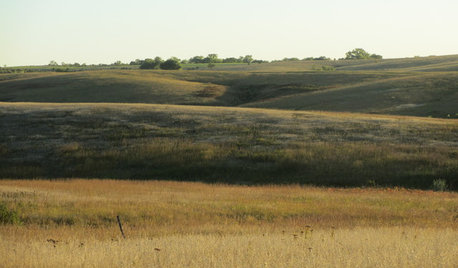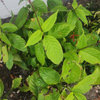Super weeds?
greenacresgirl
13 years ago
Related Stories

EDIBLE GARDENSNatural Ways to Get Rid of Weeds in Your Garden
Use these techniques to help prevent the spread of weeds and to learn about your soil
Full Story
HOUZZ TOURSHouzz Tour: From Overgrown Weeds to Picturesque Farmhouse Expanse
This once-neglected 100-acre South Carolina site now features a lake, a wood-filled farmhouse and a far-reaching view
Full Story
GARDENING GUIDESThe Poop Scoop: Enrich Your Soil With Good Old Manure
Get over the ick factor already — this natural super-ingredient for soil has so many benefits, you'll wonder why you ever went chemical
Full Story
GARDENING GUIDESLush, Foodie Abundance in a Small Urban Garden
This modest backyard garden provides its owner with fruit and vegetables all year round, thanks to an innovative low-maintenance approach
Full Story
GARDENING GUIDESHow to Get Your Prairie On
Have a field day with your landscape, even if you've got just a few modern containers on a paved path
Full Story
GARDENING AND LANDSCAPINGHouzz Survey: See What Homeowners Are Doing With Their Landscapes Now
Homeowners are busy putting in low-maintenance landscapes designed for outdoor living, according to the 2015 Houzz landscaping survey
Full Story
EDIBLE GARDENSHouzz Call: Where Are the Craziest Places You Grow Edibles?
Basil in a bathtub, spinach stacked up a wall ... If your edibles occupy an odd spot, we’d like to know
Full Story
HOUZZ TOURSMy Houzz: DIY Efforts Reward a Berkeley Family
California parents-to-be roll up their sleeves to transform the landscape and spruce up the interior of their Cliff May home
Full Story
Houzz Call: Show Us Your Halloween-Themed Entryway
Fright fest or full of friendly ghosts, your decorated entryway could be featured on the Houzz homepage
Full StoryMore Discussions









greenacresgirlOriginal Author
coffeemom
Related Professionals
Cudahy Landscape Contractors · Hendersonville Landscape Contractors · Leander Decks, Patios & Outdoor Enclosures · Norman Decks, Patios & Outdoor Enclosures · Oak Ridge Decks, Patios & Outdoor Enclosures · Pataskala Decks, Patios & Outdoor Enclosures · Shirley Decks, Patios & Outdoor Enclosures · Spanaway Decks, Patios & Outdoor Enclosures · St. Louis Decks, Patios & Outdoor Enclosures · Laurel Siding & Exteriors · Annapolis Siding & Exteriors · Augusta Siding & Exteriors · Bolingbrook Siding & Exteriors · Kenosha Siding & Exteriors · Linden Siding & Exteriors